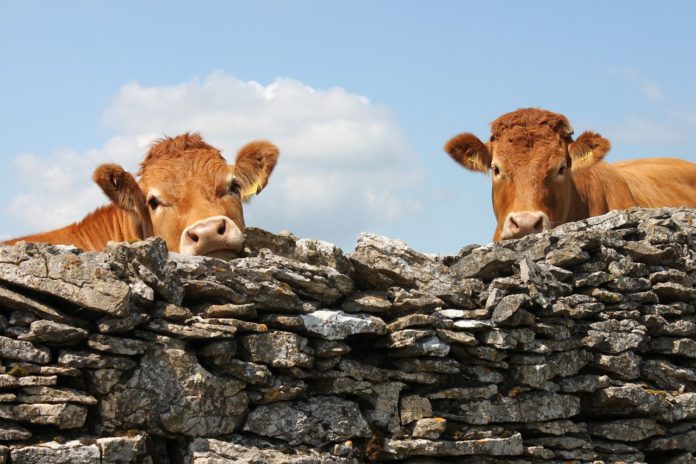KPMG’s economic impact assessment on the Private Member’s Bill has confirmed that a net-zero target of 2045 for NI will be the “ruination” of the agriculture industry.
That is according to the Ulster Farmers’ Union (UFU), who revealed that the target would result in a staggering on-farm job loss of 13,000.
Furthermore, it warned that it would result in a reduction of £11 billion in economic output with “no guarantees that the bill will reduce emissions”.
“Predictions of an 86% reduction in cattle and sheep numbers are needed to hit the 2045 target in NI which would wipe out traditional grass-based family farming systems.”
The UFU, in conjunction with the Livestock and Meat Commission (LMC), NI Meat Exporters’ Association, Dairy Council NI, NI Pork & Bacon Forum and the NI Grain Trade Association (NIGTA), commissioned KPMG to conduct the economic impact assessment.
A net-zero target of 2045
Other key findings from KPMG’s economic impact assessment include:
- The viability of the beef, dairy and sheep sectors are most at risk from herd reductions. Meanwhile, the pig and poultry sectors are likely to be relatively less impacted. Farm-level viability will become significantly challenged once herd reductions reach 20-40%;
- Total economic output would fall by between 8 – 66% across the sectors analysed. Impacts: A reduction in the sector’s capital investment activities, and herd reductions on abattoirs and other processors.
- Overall herd reductions could lead to a 54% decrease in total employment on farms.
UFU president Victor Chestnutt said, “Climate change legislation is necessary to tackle emissions from NI.”
“Farmers and the agri-food sector are willing and must play their part in tackling global warming.”
“However, we have said from the get-go that NI needs climate change legislation that is fair, credible and backed by science-based evidence supporting local farmers in their efforts to reduce emissions without diminishing our ability to produce food to world-leading standards.”
He said KPMG’s report shows that the PMB fails to deliver the climate change policy that NI needs to combat emissions “appropriately”.
Instead, he warned it will cause devastation for rural families and communities and the NI economy as a whole.
The KPMG report shows that the most marginal areas in NI will be the hardest hit.
Politicians urged to act
The UFU president stated that NI politicians need to “do the right thing” and listen to the” advice of the CCC before it is too late”.
“Without a doubt, significant changes will be needed on farms to help reduce emissions.”
“Our farmers are already contributing to the UK target of net-zero by 2050. The right policy is essential to support our members so they can continue to play their part in tackling climate change.”
He called on MLAs to “read this report from cover to cover, to come to their senses and realise the damage they will be contributing to should they back this ill-informed net-zero target”.
“They need to act in line with the advice they have been given to deliver for climate change instead of plucking figures out of a hat that would wipe out the rural economy and destroy rural areas.”
1946 milk production levels
Dairy Council for Northern Ireland chief executive, Dr Mike Johnston said,
“Family-run cattle and sheep farms form the backbone of the rural economy.”
“Wiping out these farming businesses for the sake of delivering a further 0.73% reduction to UK emissions over and above the Climate Change Committee’s (CCC) advised target is in no way rational.”
“It would reduce our highly successful dairy sector to a cottage industry, creating widespread job losses across farms, processing and ancillary industries, taking us back to levels of milk production last seen in 1946.”
“Unless consumers eating patterns change, dairy and meat produced to lower standards will be imported from other countries to replace high-quality local produce.”
He warned this would cause carbon leakage with “no benefit” to greenhouse gas emissions or global warming and increase levels of food poverty.
Rural communities will ‘pay the price’
LMC chief executive Ian Stevenson said,
“With a 98% in beef and sheep farms in marginal areas, farming will be almost completely wiped out in the most rural parts of NI.”
“Our countryside, biodiversity and societal enjoyment of well-managed farming landscapes will be severely impacted.”
He highlighted that people living in these rural areas will be left without jobs, and other employment will be harder to find.
“Rural families, whether they are from the farming community or not, are going to be the ones left to pay the price of a 2045 net-zero target for NI.”
“As an industry, we have been accused of scaremongering; the facts of this economic impact assessment speak for themselves,” he concluded.





